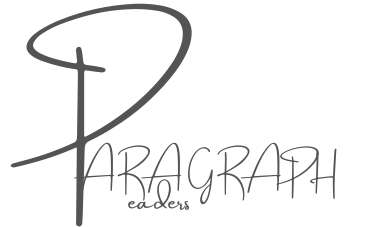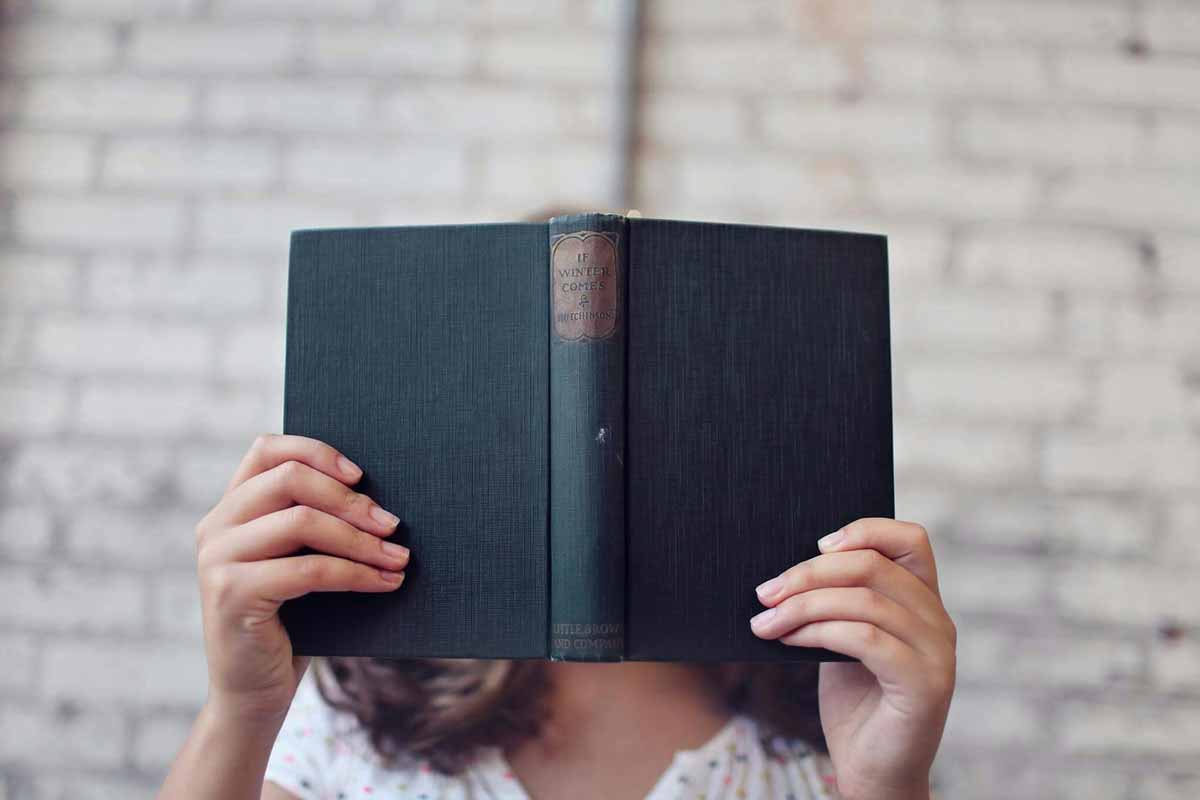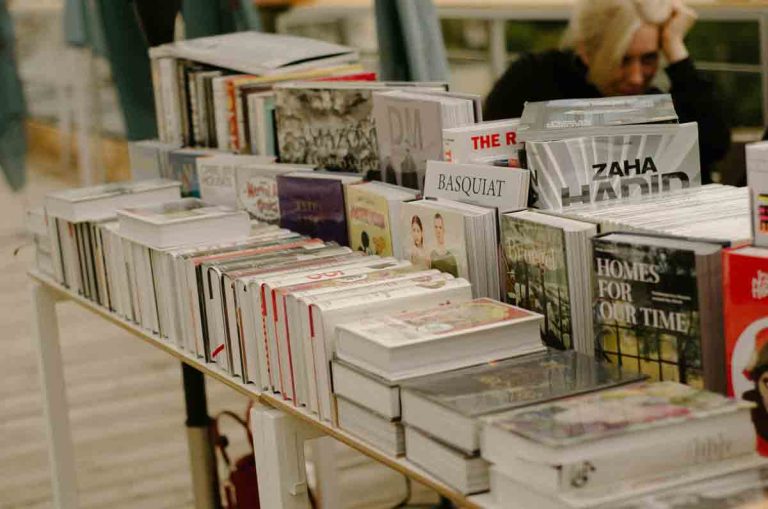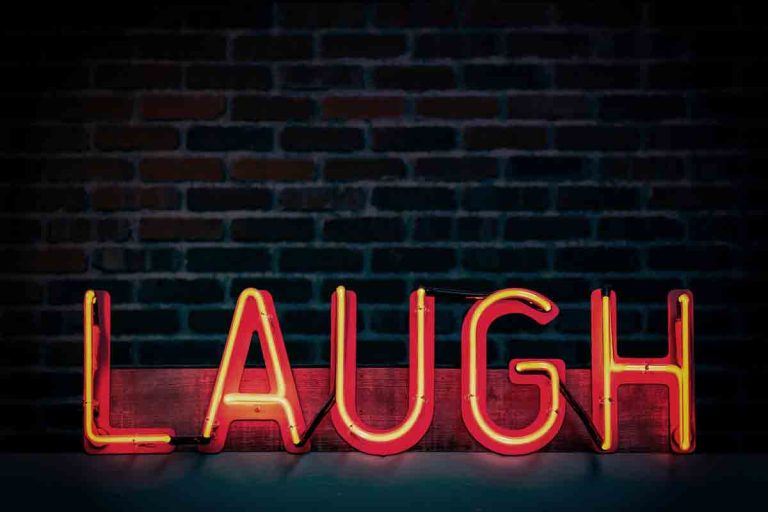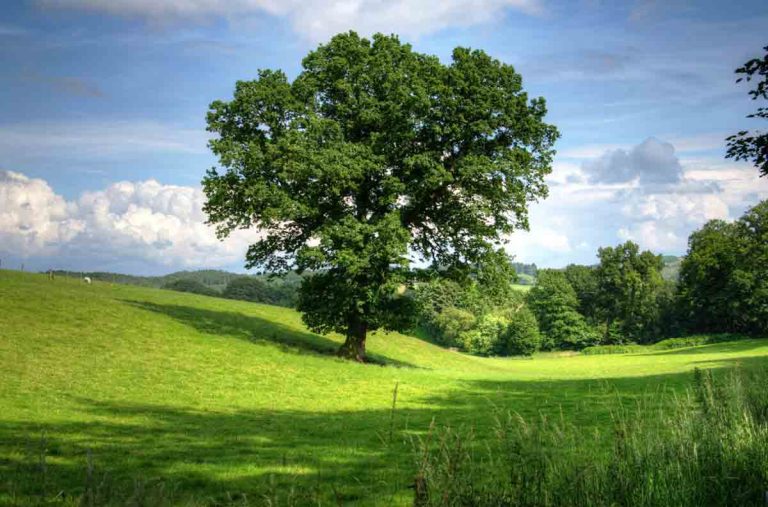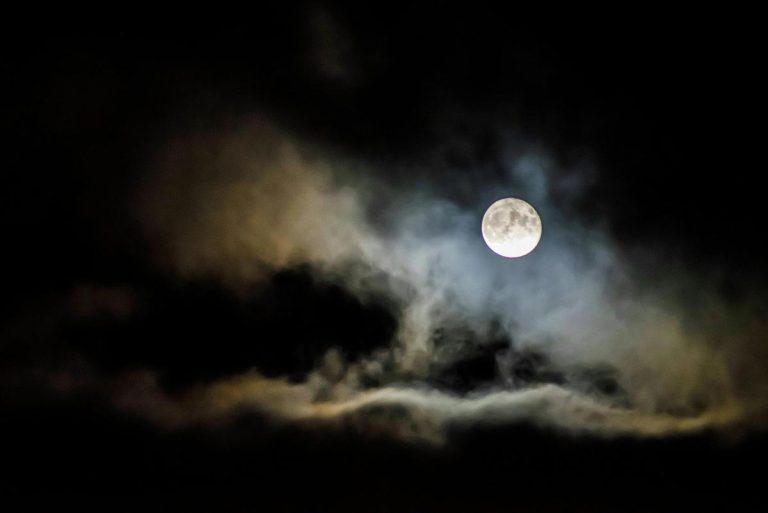Paragraph On My Hobby Reading – (Reading List Included)
In a world brimming with distractions and fast-paced living, finding solace in the pages of a book can be a sanctuary for the soul. As I sit nestled in my favorite reading nook, surrounded by towering shelves filled with literary treasures, I am transported to far-off lands, distant galaxies, and into the depths of the human experience.
Paragraph on my hobby reading teach us reading is not only for pastime; it is a lifelong love affair with words that ignite my imagination and broaden my perspective on life.
| Time of Day | Description | Why Read at This Time? |
|---|---|---|
| Morning | Peaceful, quiet start to the day. Great for focus. | Reading in the morning can help set a positive tone for the day, allowing you to start with a clear mind and focus on the material without distractions. |
| Afternoon | A refreshing break from work or other tasks. | Taking a break to read in the afternoon can rejuvenate your mind, boost productivity, and provide a mental escape from the demands of the day. |
| Evening | Cozy and relaxing before bed. Helps unwind and de-stress. | Reading in the evening can be a calming ritual to wind down from the day’s activities, promote better sleep, and stimulate imagination before bedtime. |
Paragraph On My Hobby Reading 100 Words
One of my most cherished pastimes is reading. Delving into the pages of a book is a gateway to new realms of imagination and knowledge. The act of flipping through the crisp pages of a novel or the smooth texture of a well-worn paperback brings me immense joy. Whether it’s a gripping mystery, a heartwarming romance, or an insightful non-fiction work, each book offers me a unique escape from reality. Through reading, I am able to explore diverse perspectives, expand my vocabulary, and cultivate empathy. It’s a hobby that not only entertains me but also broadens my understanding of the human experience.
My Hobby Reading Paragraph – 150 Words
Reading is my beloved hobby, a journey into realms of imagination and knowledge. When I pick up a book, I embark on adventures beyond my wildest dreams. Fictional worlds unfold before me, populated by characters who feel like old friends, while non-fiction exposes me to new ideas and perspectives.
Each page turned is a step deeper into the magic of storytelling, where words paint vivid pictures and emotions resonate long after the book is closed. Reading is more than just a pastime; it’s a source of solace, inspiration, and growth. It teaches empathy, expands horizons, and fosters understanding of the world and its inhabitants.
Whether I’m lost in the pages of a classic novel or engrossed in the latest bestseller, the joy of reading never fails to captivate me. In a fast-paced world, it’s a sanctuary where I can lose myself and find myself all at once.
Paragraph On My Hobby Reading 200 Words
Reading has always been my beloved pastime, an escape into countless worlds painted by the strokes of authors’ pens. In the quiet corners of my room or under the shade of a sprawling tree, I find solace in the pages of a book. Each story unfolds like a treasure waiting to be discovered, transporting me to realms unknown and characters unexplored.
Through reading, I have delved into history’s depths, walked alongside heroes on epic quests, and pondered the mysteries of the universe. It’s not just about entertainment; it’s about expanding horizons, nurturing empathy, and fostering creativity. Every book is a journey, and with each turn of the page, I embark on a new adventure.
In a world filled with distractions, reading offers a sanctuary of tranquility, a haven where the imagination reigns supreme. It’s not merely a pastime; it’s a passion that enriches my mind and nourishes my soul, leaving an indelible mark on my being.
Paragraph On My Hobby Reading 500 Words +
Reading is a fundamental part of my life, not just a hobby, but a passion that fuels my curiosity and enriches my understanding of the world. The act of reading is a gateway to infinite knowledge, diverse perspectives, and boundless imagination. Whether it’s books, news articles, magazines, websites, or newspapers, every form of reading offers its unique insights and benefits. Engaging with various materials not only broadens my horizons but also cultivates critical thinking, empathy, and cognitive abilities.
The benefits of reading are multifaceted and profound. Firstly, it enhances my literacy skills, improving my vocabulary, grammar, and comprehension. With each page turned, I encounter new words and sentence structures, gradually expanding my linguistic repertoire. Moreover, reading fosters analytical thinking by challenging me to interpret information, discern facts from opinions, and evaluate arguments critically. This cognitive exercise strengthens my mental faculties and equips me with the skills necessary for academic success and professional advancement.
Furthermore, reading serves as a window to different cultures, ideologies, and historical periods. Through literature, I can go on journeys to distant lands, traverse through time, and vicariously experience the lives of diverse characters. This exposure fosters empathy and understanding, breaking down barriers of prejudice and fostering a sense of interconnectedness with humanity. Additionally, reading cultivates my creativity by stimulating my imagination and inspiring innovative ideas. Whether it’s through fiction, poetry, or non-fiction narratives, literature sparks creativity by presenting alternative realities and thought-provoking concepts.
In terms of the recommended amount of reading per day, it varies depending on my preferences and schedule. However, even dedicating as little as 30 minutes to an hour daily can yield significant benefits over time. Consistency is key; making reading a habitual part of my routine ensures steady progress and maximizes the benefits derived from this activity. Moreover, diversifying my reading materials adds richness to the experience, exposing me to different genres, subjects, and writing styles. From classics to contemporary works, each literary piece offers its unique insights and contributes to my intellectual growth.
The question of why reading is essential goes beyond its immediate advantages; it’s fundamentally intertwined with human progress and enlightenment. Throughout history, literature has catalyzed societal change, sparking revolutions, challenging the status quo, and shaping cultural norms. From the Enlightenment era to the present day, the written word has been a powerful tool for disseminating knowledge, fostering dialogue, and promoting social cohesion. In an era characterized by rapid technological advancements and information overload, reading remains a timeless pursuit, offering solace, wisdom, and enlightenment amidst the chaos of modern life.
Practicing reading effectively involves adopting strategies that optimize comprehension and retention. Firstly, it’s essential to cultivate a conducive reading environment free from distractions, allowing for focused engagement with the text. Additionally, employing active reading techniques such as highlighting key passages, taking notes, and asking questions enhances comprehension and promotes deeper engagement with the material. Furthermore, discussing readings with peers or joining book clubs fosters intellectual exchange and provides valuable insights from different perspectives. Ultimately, the goal is not merely to consume information passively but to actively engage with it, critically evaluate its implications, and integrate newfound knowledge into my worldview.
Lastly, reading is more than just a hobby; it’s a transformative pursuit that enriches my life, expands my mind, and fosters lifelong learning. Whether it’s through books, news articles, magazines, websites, or newspapers, every form of reading offers its unique benefits and insights. By dedicating time to this pursuit, I cultivate literacy skills, enhance cognitive abilities, and broaden my understanding of the world. Furthermore, reading helps me understand others better, be more creative, and make a positive difference in society, giving me the ability to make smart choices in today’s complex world. So, I gladly receive the power of reading as a source of enlightenment, inspiration, and personal growth.
Benefits of Reading
Reading offers a multitude of benefits, both cognitively and emotionally. Here are some of the key advantages:
- Mental Stimulation: Reading exercises the brain, improving cognitive function and keeping the mind sharp. It enhances vocabulary, comprehension, and critical thinking skills.
- Knowledge Expansion: Reading exposes you to new ideas, perspectives, and information across various subjects and disciplines. It broadens your understanding of the world and deepens your knowledge base.
- Stress Reduction: Immersing yourself in a good book can be a form of escapism, providing a break from the stresses and pressures of daily life. It can relax your mind and reduce anxiety.
- Enhanced Empathy: Fictional literature, in particular, allows readers to step into the shoes of characters from diverse backgrounds and experiences, fostering empathy and understanding.
- Improved Focus and Concentration: Reading requires sustained attention, which can help improve focus and concentration skills, especially in an age of constant distractions.
- Language Skills: Regular reading improves language proficiency, including grammar, syntax, and vocabulary. It can enhance writing and communication abilities.
- Memory Improvement: Engaging with complex narratives and plots exercises memory retention and recall, strengthening memory capacity over time.
- Cultural Understanding: Reading exposes you to different cultures, traditions, and historical periods, fostering a deeper appreciation and understanding of diversity.
- Enhanced Imagination and Creativity: Reading stimulates the imagination, transporting you to different worlds and scenarios. It sparks creativity and encourages innovative thinking.
- Personal Growth: Through self-help books, memoirs, and autobiographies, reading can inspire personal growth, self-reflection, and motivation for positive change.
- Better Sleep: Reading before bed can help relax the mind and promote better sleep quality, especially when compared to screen time, which can disrupt sleep patterns.
- Increased Empowerment: Reading empowers individuals by providing access to information, ideas, and perspectives that can challenge assumptions and encourage critical thinking.
Overall, reading is a versatile and enriching activity that offers numerous benefits for personal, intellectual, and emotional well-being.
List Of Book You Can Read (Top book Lists)
| Number | Book Name | Author Name | Summary |
|---|---|---|---|
| 1 | Pride and Prejudice | Jane Austen | A witty and romantic novel exploring themes of love, marriage, and social class in 19th-century England, revolving around the spirited Elizabeth Bennet and the enigmatic Mr. Darcy. |
| 2 | 1984 | George Orwell | A dystopian masterpiece depicting a totalitarian society where individuality is suppressed, and the government surveils and controls every aspect of people’s lives, exploring themes of surveillance, propaganda, and resistance. |
| 3 | Crime and Punishment | Fyodor Dostoevsky | A psychological thriller following the story of Raskolnikov, a destitute student who commits a murder and grapples with guilt, redemption, and the nature of morality in St. Petersburg. |
| 4 | Hamlet | William Shakespeare | Shakespeare’s iconic tragedy delves into themes of revenge, madness, and the complexity of human nature through the introspective Prince Hamlet, who seeks to avenge his father’s murder while grappling with his own existential crisis. |
| 5 | One Hundred Years of Solitude | Gabriel García Márquez | A landmark of magical realism, this epic novel chronicles the Buendía family’s trials and tribulations over seven generations in the fictional town of Macondo, blending myth, fantasy, and history to explore themes of time, memory, and solitude. |
| 6 | Anna Karenina | Leo Tolstoy | Tolstoy’s masterpiece portrays the tragic love affair between the married Anna Karenina and the dashing Count Vronsky against the backdrop of 19th-century Russian society, delving into themes of love, morality, and societal norms. |
| 7 | The Odyssey | Homer | One of the foundational works of Western literature, Homer’s epic poem follows the Greek hero Odysseus on his perilous journey home from the Trojan War, encountering mythical creatures, gods, and challenges along the way. |
| 8 | The Stranger | Albert Camus | Camus’ existentialist novel explores the life of Meursault, a detached and apathetic Algerian, who grapples with the absurdity of existence, morality, and the inevitability of death after committing a senseless murder. |
| 9 | The Brothers Karamazov | Fyodor Dostoevsky | Dostoevsky’s magnum opus delves into the moral and spiritual dilemmas of the Karamazov brothers – Dmitri, Ivan, and Alyosha – as they navigate issues of faith, reason, and the existence of God in 19th-century Russia. |
| 10 | Lolita | Vladimir Nabokov | Nabokov’s controversial novel follows Humbert Humbert, a middle-aged literature professor, and his obsession with Dolores Haze, a young girl he nicknames Lolita, exploring themes of obsession, desire, and the corruption of innocence. |
| 11 | Great Expectations | Charles Dickens | Dickens’ classic bildungsroman follows the journey of Pip, an orphaned boy, as he navigates the social hierarchy of Victorian England, encounters colorful characters, and grapples with themes of ambition, identity, and redemption. |
| 12 | The Old Man and the Sea | Ernest Hemingway | Hemingway’s poignant novella tells the story of Santiago, an aging Cuban fisherman, and his epic struggle to catch a giant marlin in the Gulf Stream, exploring themes of perseverance, courage, and the human spirit. |
| 13 | War and Peace | Leo Tolstoy | Tolstoy’s epic novel set against the backdrop of Napoleonic wars follows the lives of several Russian aristocratic families as they grapple with love, honor, and destiny amidst the turmoil of historical events, offering profound insights into human nature and the meaning of life. |
| 14 | Don Quixote | Miguel de Cervantes | Cervantes’ iconic novel follows the adventures of Don Quixote, an aging nobleman who becomes delusional and sets out on a quest to revive chivalry, accompanied by his loyal squire Sancho Panza, in a satirical exploration of idealism, reality, and madness. |
| 15 | The Iliad | Homer | Homer’s epic poem recounts the Trojan War and the wrath of Achilles, exploring themes of honor, glory, and the human condition amidst the backdrop of divine intervention and mortal strife. |
| 16 | Madame Bovary | Gustave Flaubert | Flaubert’s groundbreaking novel follows the disillusioned Emma Bovary, trapped in a loveless marriage, as she seeks passion and excitement in extramarital affairs, ultimately leading to tragedy, offering a scathing critique of bourgeois society and gender roles in 19th-century France. |
| 17 | The Trial | Franz Kafka | Kafka’s surreal novel follows Josef K., a bank clerk, who is arrested and prosecuted by a mysterious and absurd legal system for a crime that is never revealed, exploring themes of alienation, bureaucracy, and the search for meaning in a nightmarish world. |
| 18 | The Divine Comedy | Dante Alighieri | Dante’s epic poem takes the reader on a journey through Hell, Purgatory, and Heaven, guided by the poet Virgil and his beloved Beatrice, as Dante confronts sin, redemption, and the divine order of the universe, offering a theological and allegorical exploration of the afterlife. |
| 19 | Moby-Dick or, The Whale | Herman Melville | Melville’s epic novel follows Captain Ahab’s obsessive quest for revenge against the white whale Moby Dick, exploring themes of obsession, fate, and the nature of evil amidst the vastness of the sea. |
| 20 | King Lear | William Shakespeare | Shakespeare’s tragic masterpiece follows the downfall of King Lear, who descends into madness as he divides his kingdom among his daughters, only to be betrayed and abandoned, exploring themes of power, madness, and the nature of love and loyalty. |
| Number | Book Name | Author Name | Summary |
|---|---|---|---|
| 21 | Love in the Time of Cholera | Gabriel García Márquez | García Márquez’s sweeping novel tells the story of Florentino Ariza and Fermina Daza, whose love affair spans decades, overcoming societal conventions, personal obstacles, and the passage of time, exploring themes of love, resilience, and the human heart’s capacity for devotion. |
| 22 | The Complete Fairy Tales | Hans Christian Andersen | A collection of timeless fairy tales by Hans Christian Andersen, including “The Little Mermaid,” “The Ugly Duckling,” and “The Emperor’s New Clothes,” enchanting readers with their whimsical charm, moral lessons, and enduring magic. |
| 23 | Mrs. Dalloway | Virginia Woolf | Woolf’s modernist masterpiece follows Clarissa Dalloway, an upper-class woman in post-World War I London, as she prepares for a party, intertwining the lives of various characters and delving into themes of memory, identity, and the passage of time. |
| 24 | Othello | William Shakespeare | Shakespeare’s tragedy of jealousy and betrayal follows the Moorish general Othello, manipulated by the envious Iago, as he descends into madness and destroys the woman he loves, exploring themes of race, prejudice, and the destructive power of suspicion. |
| 25 | The Arabian Nights | Anonymous | A collection of Middle Eastern folk tales and stories, including “Aladdin’s Wonderful Lamp” and “Ali Baba and the Forty Thieves,” enchanting readers with their magical adventures, moral lessons, and exotic settings. |
| 26 | Ulysses | James Joyce | Joyce’s modernist masterpiece chronicles a day in the life of Leopold Bloom in Dublin, Ireland, as he navigates various encounters and experiences, drawing parallels to Homer’s Odyssey and exploring themes of identity, consciousness, and the human condition. |
| 27 | The Sound and the Fury | William Faulkner | Faulkner’s experimental novel follows the decline of the Compson family in the American South, told from multiple perspectives and fragmented narratives, exploring themes of time, memory, and the legacy of the past. |
| 28 | Oedipus Rex (The Theban Plays, #1) | Sophocles | Sophocles’ classic tragedy follows Oedipus, the king of Thebes, as he unwittingly fulfills a prophecy of killing his father and marrying his mother, exploring themes of fate, free will, and the nature of truth. |
| 29 | Gulliver’s Travels | Jonathan Swift | Swift’s satirical novel follows Lemuel Gulliver’s adventures in fantastical lands, including Lilliput, where he encounters tiny people, and Brobdingnag, where he encounters giants, offering biting social commentary on human nature, politics, and society. |
| 30 | The Canterbury Tales | Geoffrey Chaucer | Chaucer’s collection of stories follows a diverse group of pilgrims traveling to the shrine of Thomas Becket in Canterbury, offering a vivid portrait of medieval English society and exploring themes of love, morality, and the human condition. |
| 31 | The Idiot | Fyodor Dostoevsky | Dostoevsky’s novel follows Prince Myshkin, a naive and compassionate man, as he navigates the complexities of Russian society, encountering love, betrayal, and tragedy, offering a profound exploration of innocence, goodness, and the nature of humanity. |
| 32 | Pippi Longstocking (Pippi Långstrump, #1) | Astrid Lindgren | Lindgren’s beloved children’s book follows Pippi Longstocking, an unconventional and adventurous girl with superhuman strength, as she embarks on whimsical adventures with her friends, exploring themes of independence, friendship, and imagination. |
| 33 | Du côté de chez Swann (À la recherche du temps perdu, #1) | Marcel Proust | Proust’s monumental novel explores memory, time, and consciousness through the narrator’s recollections of his childhood in the French town of Combray, offering an introspective journey into the depths of human experience. |
| 34 | The Collected Tales of Edgar Allan Poe | Edgar Allan Poe | A collection of macabre and mysterious tales by Edgar Allan Poe, including “The Tell-Tale Heart,” “The Fall of the House of Usher,” and “The Raven,” captivating readers with their haunting atmosphere, psychological depth, and literary innovation. |
| 35 | To the Lighthouse | Virginia Woolf | Woolf’s modernist novel follows the Ramsay family and their guests as they vacation on the Isle of Skye, exploring themes of art, memory, and the passage of time, while the lighthouse becomes a symbol of aspiration and the quest for meaning. |
| 36 | Beloved | Toni Morrison | Morrison’s Pulitzer Prize-winning novel tells the story of Sethe, a former slave, and her haunting memories of slavery, motherhood, and trauma, exploring themes of identity, memory, and the legacy of slavery in America. |
| 37 | Faust, First Part | Johann Wolfgang von Goethe | Goethe’s seminal work follows the scholar Faust, who makes a pact with the devil Mephistopheles in exchange for knowledge and worldly pleasures, exploring themes of ambition, desire, and the pursuit of wisdom. |
| 38 | Blindness | José Saramago | Saramago’s allegorical novel depicts a society afflicted by a mysterious epidemic of blindness, exploring themes of social breakdown, moral decay, and the fragility of civilization amidst chaos and adversity. |
| 39 | Things Fall Apart (The African Trilogy, #1) | Chinua Achebe | Achebe’s seminal novel portrays the tragic consequences of colonialism on African society through the story of Okonkwo, a proud Igbo warrior, as he grapples with cultural change, identity, and the clash of civilizations. |
| 40 | Ficciones | Jorge Luis Borges | Borges’ collection of fantastical stories blurs the lines between reality and fiction, exploring themes of infinity, labyrinthine libraries, and the nature of reality itself, challenging readers to ponder the nature of truth and illusion. |
| Number | Book Name | Author Name | Summary |
|---|---|---|---|
| 41 | Zorba the Greek | Nikos Kazantzakis | Kazantzakis’ novel follows the friendship between the introspective narrator and the exuberant Zorba, a larger-than-life character who embraces life’s pleasures and challenges with gusto, offering a philosophical exploration of freedom, passion, and the pursuit of happiness. |
| 42 | The Death of Ivan Ilych | Leo Tolstoy | Tolstoy’s novella explores the existential crisis of Ivan Ilych, a high-ranking Russian official, as he confronts his mortality and reflects on the emptiness of his bourgeois existence, offering a profound meditation on the meaning of life and the inevitability of death. |
| 43 | Middlemarch | George Eliot | Eliot’s panoramic novel offers a rich tapestry of life in the fictional English town of Middlemarch, exploring the interconnected lives and relationships of its diverse inhabitants, while delving into themes of ambition, idealism, and the pursuit of happiness. |
| 44 | Midnight’s Children | Salman Rushdie | Rushdie’s magical realist novel follows Saleem Sinai, who is born at the stroke of midnight on the eve of India’s independence, and his extraordinary life intertwined with the fate of his nation, exploring themes of history, identity, and the power of storytelling. |
| 45 | The Epic of Gilgamesh | Anonymous/Sîn-lēqi-unninni | One of the earliest known works of literature, the Epic of Gilgamesh tells the story of the legendary king Gilgamesh and his quest for immortality, exploring themes of friendship, mortality, and the search for meaning in the face of death. |
| 46 | A Doll’s House | Henrik Ibsen | Ibsen’s groundbreaking play follows Nora Helmer, a young wife and mother, as she confronts societal expectations and her own sense of identity, ultimately choosing independence and self-discovery over conformity and subservience. |
| 47 | Journey to the End of the Night | Louis-Ferdinand Céline | Céline’s darkly comic novel follows the misadventures of Bardamu, a disillusioned French soldier and doctor, as he traverses the chaotic landscapes of World War I, colonial Africa, and 1920s America, offering a scathing critique of modern civilization and the human condition. |
| 48 | Invisible Man | Ralph Ellison | Ellison’s landmark novel follows the unnamed narrator, a young African American man, as he navigates the complexities of race and identity in mid-20th-century America, confronting racism, invisibility, and the search for selfhood in a divided society. |
| 49 | Leaves of Grass | Walt Whitman | Whitman’s groundbreaking collection of poetry celebrates the beauty of the American landscape, the diversity of its people, and the interconnectedness of all existence, offering a lyrical meditation on democracy, individualism, and the human spirit. |
| 50 | The Magic Mountain | Thomas Mann | Mann’s novel follows the young Hans Castorp as he visits a sanatorium in the Swiss Alps, where he encounters a cast of eccentric characters and becomes embroiled in philosophical debates about life, death, and the nature of time, amidst the backdrop of pre-World War I Europe. |
| 51 | The Book of Disquiet | Fernando Pessoa | Pessoa’s fragmentary work explores the inner life and philosophical musings of Bernardo Soares, a fictional persona, as he reflects on existence, art, and the nature of reality, offering a profound meditation on the human condition and the quest for meaning. |
| 52 | The Man Without Qualities | Robert Musil | Musil’s epic novel follows Ulrich, a disillusioned Austrian man, as he navigates the tumultuous events leading up to World War I, exploring themes of identity, morality, and the decline of European civilization amidst the chaos of modernity. |
| 53 | Hunger | Knut Hamsun | Hamsun’s novel follows the struggles of an unnamed narrator, a starving writer, as he wanders the streets of Kristiania (now Oslo) in search of food, shelter, and artistic recognition, offering a raw and introspective portrayal of poverty, alienation, and the creative impulse. |
| 54 | The Decameron | Giovanni Boccaccio | Boccaccio’s collection of novellas follows a group of young people who flee the plague-ravaged city of Florence and entertain themselves by telling 100 tales over ten days, exploring themes of love, fate, and the human condition amidst the backdrop of medieval Italy. |
| 55 | Dead Souls | Nikolai Gogol | Gogol’s satirical novel follows the enigmatic Chichikov as he travels through provincial Russia, buying up “dead souls” – the names of deceased serfs – to acquire wealth and status, offering a biting critique of social and political corruption in 19th-century Russia. |
| 56 | Metamorphoses | Ovid | Ovid’s epic poem recounts the myths and legends of Greek and Roman mythology, including the stories of Apollo and Daphne, Pygmalion and Galatea, and Orpheus and Eurydice, exploring themes of transformation, love, and the power of storytelling. |
| 57 | The Aeneid | Virgil | Virgil’s epic poem tells the story of Aeneas, a Trojan hero who flees the fall of Troy and journeys to Italy, where he founds the precursor to Rome, exploring themes of destiny, piety, and the founding of a new civilization amidst the backdrop of war and divine intervention. |
| 58 | The Castle | Franz Kafka | Kafka’s unfinished novel follows the character known only as K., who arrives in a remote village and seeks access to the mysterious Castle, encountering bureaucratic obstacles and existential dilemmas, offering a haunting portrayal of alienation, authority, and the search for meaning. |
| 59 | Wuthering Heights | Emily Brontë | Brontë’s Gothic novel explores the intense and tumultuous relationship between Catherine Earnshaw and Heathcliff, spanning generations and haunted by revenge, passion, and the supernatural, offering a haunting meditation on love, obsession, and the human psyche. |
| 60 | Medea | Euripides | Euripides’ tragic play tells the story of Medea, a woman scorned by her husband Jason, who seeks revenge by murdering their children, exploring themes of betrayal, vengeance, and the consequences of unchecked passion. |
| Number | Book Name | Author Name | Summary |
|---|---|---|---|
| 61 | Mahabharata | Vyasa | The ancient Indian epic narrates the Kurukshetra War and the fates of the Kaurava and Pandava princes, exploring themes of duty, righteousness, and the cosmic order, while containing philosophical discourses such as the Bhagavad Gita, offering profound insights into Indian mythology and spirituality. |
| 62 | The Red and the Black | Stendhal | Stendhal’s novel follows the ambitious Julien Sorel as he rises from poverty to prominence in post-Napoleonic France, navigating the complexities of love, social climbing, and political intrigue, offering a penetrating portrayal of 19th-century French society and the human desire for advancement. |
| 63 | The Complete Stories | Franz Kafka | Kafka’s collection of short stories showcases his mastery of the absurd and the surreal, including “The Metamorphosis,” “The Hunger Artist,” and “In the Penal Colony,” exploring themes of alienation, guilt, and existential angst in a world governed by irrational forces. |
| 64 | Gargantua and Pantagruel | François Rabelais | Rabelais’ pentalogy follows the adventures of the giant Gargantua and his son Pantagruel, blending satire, bawdy humor, and philosophical inquiry to critique the social, religious, and political institutions of Renaissance France, offering a raucous and irreverent celebration of human folly and wisdom. |
| 65 | Selected Stories of Anton Chekhov | Anton Chekhov | Chekhov’s collection of short stories showcases his keen insight into the human condition, including “The Lady with the Dog,” “The Cherry Orchard,” and “The Seagull,” offering poignant snapshots of Russian life and society at the turn of the 20th century. |
| 66 | Père Goriot | Honoré de Balzac | Balzac’s novel follows the intertwined lives of Eugène de Rastignac, a young law student, and the impoverished Father Goriot, as they navigate the treacherous waters of Parisian society, offering a panoramic portrait of ambition, greed, and social climbing in 19th-century France. |
| 67 | The Tin Drum | Günter Grass | Grass’ novel follows Oskar Matzerath, a young boy who decides to stop growing at the age of three and communicates through his tin drum, witnessing the tumultuous events of 20th-century Germany, offering a surreal and satirical exploration of history, memory, and the human condition. |
| 68 | The Adventures of Huckleberry Finn | Mark Twain | Twain’s classic follows Huck Finn, a young boy, and Jim, a runaway slave, as they embark on a journey down the Mississippi River, encountering colorful characters and confronting the moral complexities of race and freedom in antebellum America, offering a satirical and heartfelt critique of racism and hypocrisy. |
| 69 | Absalom, Absalom! | William Faulkner | Faulkner’s novel explores the rise and fall of Thomas Sutpen, a charismatic and enigmatic figure, and the mysteries surrounding his family’s history in the antebellum South, offering a nonlinear narrative that delves into themes of race, legacy, and the burden of the past. |
| 70 | Buddenbrooks: The Decline of a Family | Thomas Mann | Mann’s novel traces the decline of the Buddenbrook family over four generations in 19th-century Lübeck, Germany, exploring themes of tradition, modernity, and the erosion of values amidst the social and economic upheavals of industrialization, offering a sweeping portrayal of bourgeois life. |
| 71 | Ramayana | Valmiki/Vyasa | An ancient Indian epic, the Ramayana narrates the adventures of Prince Rama and his quest to rescue his wife Sita from the demon king Ravana, exploring themes of duty, honor, and the triumph of good over evil, while serving as a cornerstone of Hindu mythology and culture. |
| 72 | Sons and Lovers | D.H. Lawrence | Lawrence’s semi-autobiographical novel follows Paul Morel, a young man torn between his love for his possessive mother and his relationships with other women, exploring themes of sexuality, family dynamics, and the quest for emotional fulfillment in the coal-mining communities of England. |
| 73 | Demons | Fyodor Dostoevsky | Dostoevsky’s novel examines the nihilistic and revolutionary fervor gripping Russia in the 1860s through the actions of a group of radicals known as the “demons,” exploring themes of ideology, morality, and the nature of evil amidst the social and political upheaval of the era. |
| 74 | Pedro Páramo | Juan Rulfo | Rulfo’s novel follows Juan Preciado as he journeys to Comala, Mexico, in search of his father, Pedro Páramo, and encounters a ghostly town haunted by memories of the past, offering a surreal and haunting meditation on memory, loss, and the legacy of violence in Mexican history. |
| 75 | Memoirs of Hadrian | Marguerite Yourcenar | Yourcenar’s novel takes the form of a letter from the Roman Emperor Hadrian to his successor Marcus Aurelius, reflecting on his life, loves, and accomplishments, while offering profound insights into politics, philosophy, and the quest for wisdom in ancient Rome. |
| 76 | The Book of Job (Pocket Canon) | Anonymous | An ancient biblical text, the Book of Job wrestles with the problem of human suffering and the nature of divine justice through the story of Job, a righteous man who faces immense trials and tribulations, offering enduring lessons on faith, resilience, and the mystery of God’s ways. |
| 77 | The Golden Notebook | Doris Lessing | Lessing’s novel explores the life of Anna Wulf, a writer struggling to reconcile her personal and political identities, as she keeps four notebooks to record her thoughts and experiences, offering a groundbreaking portrayal of female consciousness and the complexities of modern womanhood. |
| 78 | The Complete Essays | Michel de Montaigne | Montaigne’s collection of essays covers a wide range of topics, including friendship, education, and the nature of humanity, offering profound reflections on the human condition and the pursuit of wisdom in the turbulent era of the French Renaissance. |
| 79 | The Life and Opinions of Tristram Shandy, Gentleman | Laurence Sterne | Sterne’s novel is a metafictional masterpiece that defies conventional narrative structure, offering a digressive and humorous account of the life and adventures of Tristram Shandy, exploring themes of identity, language, and the nature of storytelling itself. |
| 80 | Molloy / Malone Dies / The Unnamable | Samuel Beckett | Beckett’s trilogy of novels follows the existential struggles of various narrators as they grapple with memory, identity, and the limitations of language, offering a bleak yet profound meditation on the human condition and the absurdity of existence in the postwar era. |
| Number | Book Name | Author Name | Summary |
|---|---|---|---|
| 81 | مثنوی معنوی | Jalal ad-Din Muhammad Rumi | Rumi’s poetic masterpiece, written in Persian, consists of spiritual couplets exploring themes of love, devotion, and the quest for union with the divine, offering timeless wisdom and insight into the Sufi tradition of mystical Islam. |
| 82 | Jacques the Fatalist | Denis Diderot | Diderot’s novel follows the philosophical discussions between Jacques, a servant, and his master as they journey across France, debating the nature of free will, fate, and morality, while encountering a series of absurd and comic adventures, offering a satirical exploration of Enlightenment ideas and the uncertainties of human existence. |
| 83 | Season of Migration to the North | Tayeb Salih | Salih’s novel tells the story of Mustafa Sa’eed, a Sudanese man returning from England to his native village, where he becomes embroiled in a complex relationship with the narrator, exploring themes of colonialism, identity, and cultural alienation in postcolonial Sudan. |
| 84 | The Tale of Genji | Murasaki Shikibu | Murasaki’s classic novel, written in 11th-century Japan, follows the romantic exploits of Prince Genji and his descendants, offering a vivid portrait of courtly life, love, and longing in Heian-era Japan, while exploring themes of beauty, impermanence, and the passage of time. |
| 85 | Sentimental Education | Gustave Flaubert | Flaubert’s novel follows the romantic misadventures of Frédéric Moreau, a young man from provincial France, as he navigates the turbulent waters of love, ambition, and social upheaval in mid-19th-century Paris, offering a panoramic view of French society during the Second Empire. |
| 86 | أولاد حارتنا | Naguib Mahfouz | Mahfouz’s novel, set in the alleys of Cairo, follows the lives of the residents of a working-class neighborhood, exploring themes of family, community, and social change in Egypt during the early 20th century, offering a poignant portrayal of everyday life and the struggle for dignity amidst poverty. |
| 87 | Independent People | Halldór Laxness | Laxness’ epic novel follows Bjartur, a stubborn and independent Icelandic sheep farmer, as he battles the harsh landscape and societal expectations to achieve self-sufficiency and freedom, offering a profound meditation on the nature of independence, resilience, and the human spirit. |
| 88 | The Sound of the Mountain | Yasunari Kawabata | Kawabata’s novel explores the inner life of Shingo, an elderly man in postwar Japan, as he grapples with the complexities of family relationships, memory, and mortality, offering a lyrical and poignant meditation on the passage of time and the beauty of everyday existence. |
| 89 | Nostromo | Joseph Conrad | Conrad’s novel is set in the fictional South American country of Costaguana, where the lives of various characters become intertwined amidst political upheaval, corruption, and greed, offering a gripping exploration of imperialism, revolution, and the human capacity for moral compromise. |
| 90 | Zeno’s Conscience | Italo Svevo | Svevo’s novel is a psychological portrait of Zeno Cosini, an introspective and neurotic Italian businessman, as he reflects on his life, relationships, and struggles with addiction, offering a humorous and insightful exploration of the complexities of the human mind. |
| 91 | Diary of a Madman and Other Stories | Nikolai Gogol | Gogol’s collection of short stories showcases his satirical wit and keen observations of Russian society, including the title story “Diary of a Madman” and “The Overcoat,” offering a humorous yet profound critique of bureaucracy, social hierarchy, and the absurdities of everyday life. |
| 92 | Grande Sertão: Veredas | João Guimarães Rosa | Rosa’s novel follows Riobaldo, a former bandit, as he recounts his adventures in the rugged landscape of the Brazilian backlands, exploring themes of identity, spirituality, and the clash of cultures in the vast and mysterious region known as the Sertão, offering a lyrical and existential journey into the heart of Brazil. |
| 93 | Romancero gitano | Federico García Lorca | Lorca’s collection of poetry evokes the passion, longing, and tragedy of the Spanish Gypsy (Gitano) culture, capturing the rhythms and imagery of Andalusian life while exploring themes of love, death, and the struggle for freedom, offering a vibrant and haunting celebration of Spanish folklore and identity. |
| 94 | History (La Storia, #1-2) | Elsa Morante | Morante’s epic novel follows the life of Ida Mancuso, a young girl coming of age in fascist Italy during World War II, as she navigates the turmoil of war, poverty, and loss, offering a sweeping portrait of Italian society and the human capacity for resilience and resistance in the face of adversity. |
| 95 | Poems of Paul Celan | Paul Celan | Celan’s poetry, written in German, grapples with the trauma of the Holocaust and the search for meaning amidst the devastation of war, offering haunting and enigmatic verses that explore themes of memory, loss, and the possibility of redemption through language and art. |
| 96 | Berlin Alexanderplatz | Alfred Döblin | Döblin’s novel follows Franz Biberkopf, a former convict, as he tries to rebuild his life in the chaotic streets of Weimar-era Berlin, exploring themes of crime, poverty, and the struggle for survival amidst the social and political upheaval of interwar Germany, offering a kaleidoscopic portrait of a city in flux. |
| 97 | Njal’s Saga | Anonymous | An Icelandic saga, Njal’s Saga tells the story of feuds, alliances, and betrayals among Icelandic chieftains during the Viking Age, offering a vivid depiction of medieval Icelandic society and the complex web of honor, revenge, and legal conflict that governed daily life. |
| 98 | The Recognition of Śakuntalā | Kālidāsa | Kālidāsa’s Sanskrit play tells the story of Śakuntalā, a beautiful maiden raised in the forest by sage Kanva, and her love affair with King Duṣyanta, exploring themes of love, duty, and the consequences of forgetfulness, while showcasing the richness of Indian literary and dramatic traditions. |
| 99 | The Orchard: The Bostan Of Saadi Of Shiraz | Saadi | Saadi’s Persian poetry collection, Bostan (The Orchard), offers a series of moral and philosophical reflections on life, love, and the human condition, exploring themes of wisdom, kindness, and the pursuit of inner peace amidst the tumult of the world, while drawing on Sufi and Islamic teachings. |
| 100 | The Poems of Giacomo Leopardi | Giacomo Leopardi | Leopardi’s poetry, written in Italian, reflects on the human condition with a sense of melancholy and existential despair, exploring themes of mortality, nature, and the fleetingness of human existence, while expressing a profound yearning for transcendence and spiritual fulfillment. |
Conclusion
Paragraph on my hobby reading instruct us that reading is not just a hobby but a gateway to endless possibilities and knowledge. It allows us to escape into different worlds, broaden our perspectives, and cultivate empathy. Through reading, we can learn about new cultures, historical events, and diverse viewpoints.
The benefits of reading extend beyond mere entertainment; it enhances our cognitive abilities, vocabulary, and critical thinking skills. So next time you have a free moment, pick up a book and embark on a journey of discovery and growth.
